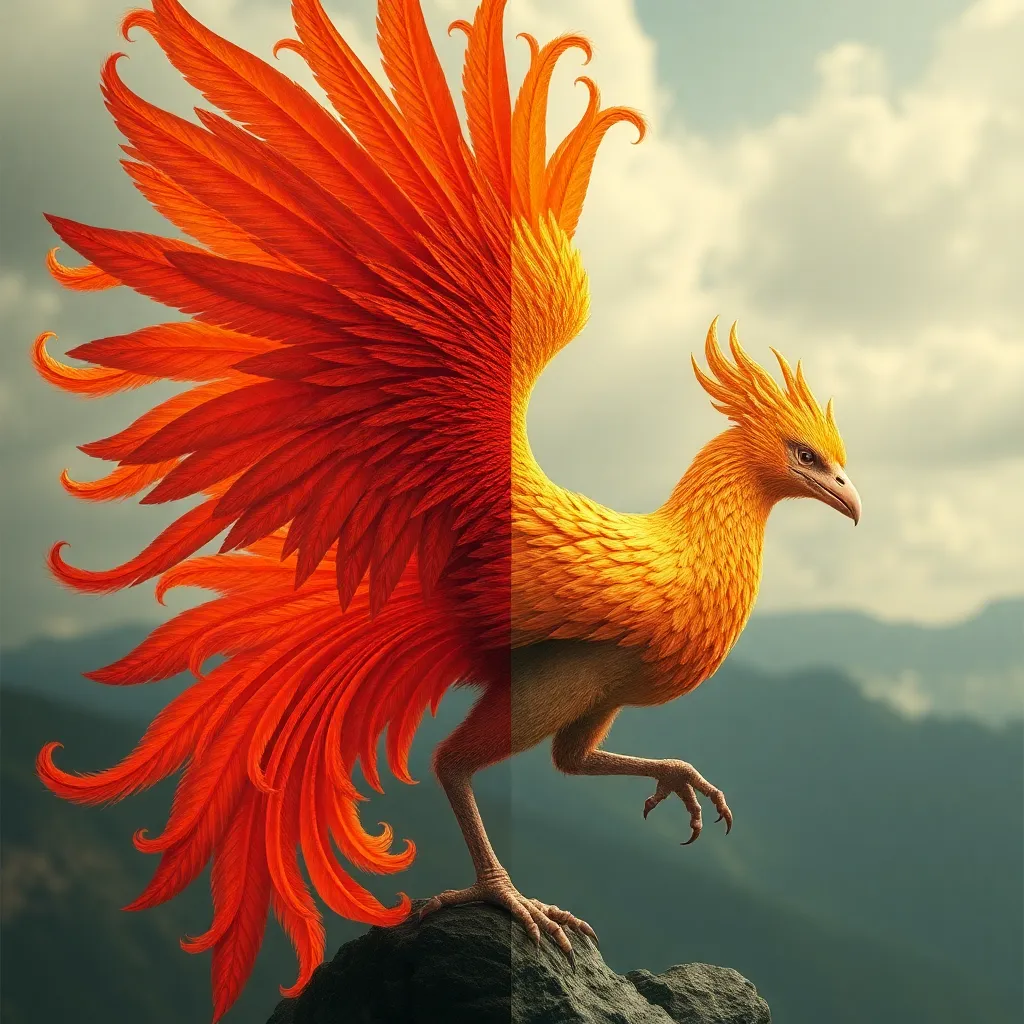Guardians of the Underworld: A Look at the Egyptian God Thoth and His Role in the Afterlife
I. Introduction
Ancient Egyptian civilization is renowned for its complex beliefs surrounding the afterlife. The Egyptians held a profound conviction that life continued beyond death, leading to elaborate burial practices and a rich mythology that defined their understanding of existence after this life. Central to these beliefs was Thoth, the god of wisdom, writing, and the moon, who played a pivotal role in the afterlife and the judgment of souls.
This article aims to explore the multifaceted role of Thoth within the context of ancient Egyptian beliefs, particularly focusing on his significance in the afterlife, his associations with other deities, and his enduring legacy in both ancient and modern contexts.
II. The Mythological Background of Thoth
Thoth’s origins are steeped in the rich tapestry of Egyptian mythology. He is often depicted as a baboon or an ibis-headed figure, symbolizing his association with wisdom and the moon. According to various creation myths, Thoth was born from the lips of Ra, the sun god, or emerged from the primordial waters of Nun.
- Attributes and Symbols: Thoth is associated with several attributes, including the ankh (symbol of life), the scribe’s palette, and the moon, representing the passage of time and knowledge.
- Iconography: In ancient art, Thoth is frequently depicted writing on a papyrus scroll or holding a writing tool, signifying his role as the divine scribe.
III. Thoth’s Role in the Afterlife
In the context of the afterlife, Thoth held a significant position as the mediator between the gods and the souls of the deceased. His wisdom and knowledge were essential for the judgment process that determined the fate of souls.
A. The Significance of Thoth in the Judgment of Souls
Thoth’s most important role was during the judgment of souls, a critical event that occurred in the Hall of Ma’at. Here, he documented the outcomes of the judgment, ensuring that every soul’s fate was recorded accurately.
B. The Weighing of the Heart Ceremony
The weighing of the heart ceremony was a pivotal moment for the deceased. In this ritual, the heart of the deceased was placed on one side of a scale, while a feather, symbolizing Ma’at (truth and justice), was placed on the other. Thoth oversaw this process, ensuring that the scales were balanced fairly.
C. Thoth as the Scribe of the Underworld
As the scribe of the underworld, Thoth meticulously recorded the results of the judgment. His role was crucial in maintaining the order and balance necessary for the afterlife, as he transcribed the deeds of the deceased and the verdict of the gods.
IV. Thoth’s Associations with Other Deities
Thoth was deeply intertwined with the Egyptian pantheon and had significant relationships with other deities, enhancing his role in the afterlife.
A. Relationship with Osiris, the God of the Afterlife
Osiris, the god of the afterlife and resurrection, was another key figure in Egyptian mythology. Thoth assisted Osiris in the resurrection of the dead, providing the knowledge and wisdom necessary for the rebirth process.
B. Interaction with Ma’at, the Goddess of Truth and Justice
Thoth’s relationship with Ma’at was fundamental, as he embodied the principles of wisdom and truth that she represented. Together, they ensured that justice prevailed during the judgment of souls.
C. Thoth’s Role in the Pantheon of Egyptian Gods
In the broader context of the Egyptian pantheon, Thoth was revered as a mediator and a keeper of divine order, ensuring that the cosmic balance was maintained.
V. Thoth as the God of Wisdom and Knowledge
Beyond his role in the afterlife, Thoth was also celebrated as the god of wisdom, writing, and knowledge. His contributions to various fields were profound and far-reaching.
A. Thoth’s Contributions to Writing and Language
Thoth is credited with the invention of writing, which was vital for the administration, culture, and religion of ancient Egypt. The hieroglyphs, which were sacred symbols, were believed to be a gift from Thoth.
B. The Impact of Thoth on Egyptian Science and Magic
Thoth’s influence extended to various disciplines, including mathematics, astronomy, and medicine. He was regarded as a patron of scholars and scribes, promoting the pursuit of knowledge.
C. Thoth as a Patron of Scribes and Scholars
Scribes, who were essential for record-keeping and administration, looked to Thoth for inspiration and guidance. His wisdom was revered, and many sought his favor in their scholarly pursuits.
VI. Rituals and Worship of Thoth
The worship of Thoth was ingrained in the daily lives of the ancient Egyptians, with various rituals and practices dedicated to him.
A. Temples and Sacred Sites Dedicated to Thoth
Thoth had several temples, notably in Hermopolis, where he was primarily worshipped. These temples served as centers for learning and knowledge.
B. Festivals and Ceremonies Honoring Thoth
Festivals were held to honor Thoth, featuring rituals that celebrated his contributions to writing and wisdom. These events often included music, dance, and offerings.
C. The Role of Thoth in Daily Life and Religious Practice
Thoth was invoked in various daily activities, particularly those involving writing and record-keeping. His blessings were sought for success in scholarly endeavors and creative pursuits.
VII. Thoth in Modern Interpretations and Popular Culture
Thoth’s legacy extends into modern interpretations and popular culture, reflecting his enduring significance.
A. Representation of Thoth in Literature and Media
Thoth has been featured in numerous works of literature, movies, and games, often portrayed as a wise figure or a mystical being associated with knowledge and the afterlife.
B. The Influence of Thoth on Contemporary Spiritual Practices
In modern spiritual practices, Thoth is often invoked for wisdom and guidance. Many contemporary practitioners of mysticism and esotericism draw inspiration from his teachings.
C. Thoth’s Legacy in Modern Society
Thoth’s legacy continues to influence various fields, including psychology, philosophy, and the arts, where his archetype of the wise sage remains relevant.
VIII. Conclusion
Thoth’s multifaceted role in the afterlife and his influence on wisdom, writing, and knowledge underscore his importance in ancient Egyptian mythology. As a guardian of the underworld and a mediator between the divine and the mortal realm, Thoth played a crucial role in the spiritual lives of the ancient Egyptians.
Reflecting on Thoth’s significance reveals the profound understanding the Egyptians had about life, death, and the continuum of existence. His legacy, as a symbol of wisdom and knowledge, continues to resonate in modern interpretations and practices, ensuring that the guardian of the underworld remains a vital figure in both history and contemporary culture.




